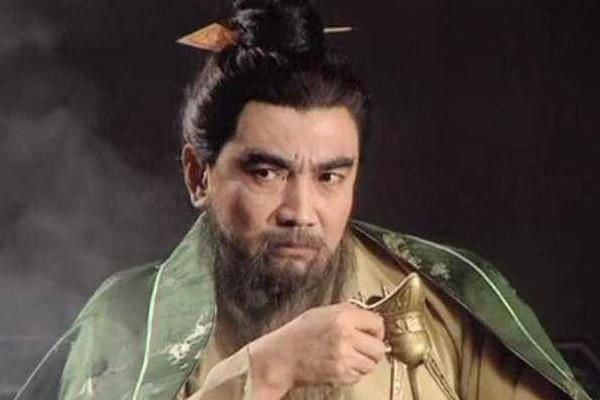Cao Cao was a romantic poet, politician, and military man, and he was also a bohemian. So he often did some very interesting things, such as robbing the bride with Yuan Shao when he was young, and not caring about the beard staining the vegetable soup when telling jokes. Recently, reading the Romance of the Three Kingdoms, I found that he had written letters to Zhuge Liang and Tai Shi Ci respectively, and sent some strange things!

Send Zhuge Liang 5 pounds of chicken coop incense
Now offer five pounds of chicken tongue incense to show a slight meaning. - "Book with Zhuge Liang"
There is a letter from Emperor Weiwu's Collected Writings, "Book with Zhuge Liang", written by Cao Cao to Zhuge Liang, which is very short, only eleven characters. The meaning is also easy to understand, send you five pounds of chicken coop incense, chat to express my respect for you. So what is the meaning of Cao Cao writing this letter to Zhuge Liang and sending five pounds of chicken coop incense?
The key is to figure out what "chicken tongue" is. According to the "Qi Min Zhi Shu" Yun: Chicken tongue incense, the world is like a dingzi, so a clove, that is, the current lilac is also. Rihua Ziyun: Chicken cures breath, so far Fang Shu is so far. Ying Shao Han official waiter, old bad breath, the emperor gave chicken tongue incense contained. It turned out that the chicken coop incense was cloves, and Ying Shao had served as a Han waiter, and when he was old and had bad breath, the emperor gave him chicken coop incense to contain.
So Cao Cao sent chicken tongue incense to Zhuge Liang because of Zhuge Liang's bad breath? The answer, of course, is no. Because in the late Eastern Han Dynasty, when the imperial court officials met the emperor, their mouths contained cloves, it became a popular trend. Later, using chicken tongue incense in his mouth to express the meaning of serving as an official in the court and working with the imperial court, Cao Cao sent five pounds of chicken tongue incense to Zhuge Liang, in fact, he wanted to enlist Zhuge Liang to conspire with the community and use it for himself.
In fact, Cao Cao very much liked to do these seemingly boring things. For example, after the Battle of Chibi, in order to destroy Sun Liu's alliance, Cao Cao wrote letters to Sun Quan and Liu Bei. In order to win over Zhou Yu, in 209 Cao Cao sent Jiang Gan to persuade Zhou Yu to surrender, which is the bridge section of "Jiang Gan stealing books" in the rendition. Later, Cao Cao also wrote to Sun Quan, saying that the defeat of Chibi was "the retreat of the lonely ship, which made Zhou Yu falsely obtain this name."
Send Too Shi Ci Angelica
"Cao Gong heard his name, testamented the book of mercy, sealed it with a seal, and sent the province to no way, but stored angelica." - "Romance of the Three Kingdoms, Biography of Taishi Ci"
The meaning of this passage is that Cao Cao heard about the prestige of Tai Shi Ci, so he wrote a letter to Tai Shi Ci, sealed it in a small box, and after opening it, he found that nothing was written, but some "angelica" was placed in the box. Cao Cao is also very interesting, angelica is a chinese herbal medicine, Cao Cao put angelica meaning is naturally to imply that Tai Shi Ci should return to the north, leave Sun Ce to rely on himself.
Tai Shi Ci, Zi Yi, Qingzhou Donglai people. Seven feet seven inches long, with beautiful beard, ape arms good shooting, strings are not vain, is a real sharpshooter. He has been very studious since he was a child, and later served as the sonata of Cao Shi of Hongun, and was known for his performance in the Taishou Prefecture, and later avoided the disasters of Liaodong. Kong Rong heard about Tai Shi Ci's miraculous feats and sent people to take care of Tai Shi Ci's mother many times. After Tai Shi Ci returned from Liaodong, his mother asked him to repay Kong Rong.
At that time, Kong Rong was surrounded by yellow turbans in beihai, and Taishi Cidan rode out of the city to the plains to ask Liu Bei to send troops. Later, Tai Shi Ci went south to the same county's Yangzhou assassin Liu Sui, and encountered Sun Ce at the Shrine, and the two engaged in a "head-to-head". After Liu Xuan's defeat, Tai Shi Ci joined Sun Ce's camp and recruited the remnants of Liu Xuan for Sun Ce and guarded Jianchang. Cao Cao heard about Tai Shi Ci's various righteous deeds that he became fond of talent, so he gave him "Angelica" to express his meaning.
Since Tai Shi Ci, who was loyal and unmatched, had become a confidant with Sun Ce, he certainly would not leave Sun Ce and go to Cao Cao. After Sun Quan's unification, because Tai Shi Ci was able to control Liu Pan [pán], he entrusted him with the important task of managing the south. In the eleventh year of Jian'an (206), Tai Shi Ci died, and before his death, he said: "When a husband is born, he should take a seven-foot sword to ascend to the rank of the Son of Heaven." If you don't do it now, why die! ”
Cao Cao wrote to Zhuge Liang to send chicken tongue incense and to Tai Shi Ci to send angelica, although it looks a bit "nonsensical", but it also shows his thirst for talents, as well as his uninhibited personality and his personality of doing whatever he thinks, which is also a very interesting story.
References: Notes on Pei Songzhi in romance of the Three Kingdoms, And Lu Simian in History of the Three Kingdoms